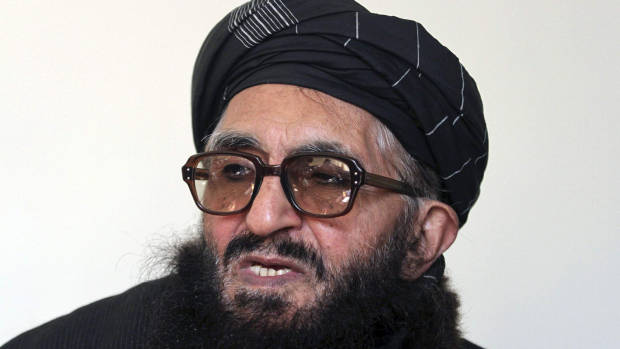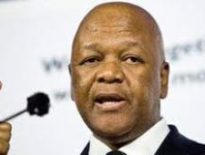KABUL – A former Taliban leader-turned peace negotiator was assassinated by an unidentified
gunmen in a brazen attack in the Afghan capital on Sunday. Arsala Rahmani was gunned down by three
armed men traveling in a car near a downtown part of the city as Rahmani headed to his office from his
home, officials said.

“He died
from bullet wound on the way to the hospital,” General Mohammad Zaher, chief for the criminal branch of
Kabul police said by phone. “It is a big loss for Afghanistan. He was thinking about peace and about
key national issues,” said Nisar Hares, a lawmaker and close colleague of Rahmani who was also serving
as senator apart from running a commission in the government-appointed High Peace Council
(HPC).
The embassy of the United States, which is the main donor
for the HPC, described the assassination as a tragedy. No group has claimed responsibility for the
killing and Taliban insurgents said they were not behind it, although the guerrillas, while announcing
the launch of their annual spring offensive early this month, said the militants would target members
of the HPC among others. Last year, a suicide bomber, posing as an emissary for the Taliban insurgents,
killed HPC head Burhanuddin Rabbani in his Kabul home. Rabbani’s killing led to the collapse of HPC’s
unsuccessful efforts for reaching out to the insurgents.
The
Afghan government officials at the time accused neighboring Pakistan in the killing, with suspicion
falling largely on the Taliban, which still has neither taken nor refuted responsibility for the
assassination.
A veteran of the war during the occupation of
Afghanistan by the former Soviet Union in the 1980s, Rahmani served as a deputy minister for higher and
vocational education during the Taliban government.
He was among
a small group of former Taliban leaders who decided not to join the insurgency after U.S.-led Afghan
forces toppled the Taliban’s government from power in 2001. In recent years, Rahmanid used his past
influence and contacts in an attempt to pave the way to establish understanding and dialogue between
the Taliban leadership and President Hamid Karzai’s government.
An Islamic scholar at least 70 years old, Rahamni was appointed as a member of the HPC when
it formed in late 2010. He often spoke to the media about his ideas for how to settle the long U.S.-led
conflict and about the role of insurgents from various parts of the world.
“The relatives of Talibs come to me and say, ‘If you release my brother I will help with the
peace process,’” Rahmani told The Washington Post in his Kabul home last month.
During that meeting, as if on cue, his phone rang. A man in Khost was
pleading for his brother’s release. Rahmani, tall and willowy, listened patiently and told the man he
would try to help. The peace process depends on such good faith efforts.
But Rahmani still had moments of deep skepticism, even as he attempted to advance the
reconciliation process.
“They always say they’re innocent,” he
said in April after hanging up the phone. “They’re almost all lying.”





